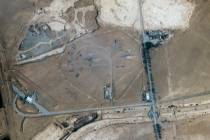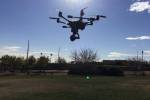Engineers help improve world by solving puzzling problems
It has been frequently stated: "Scientists investigate that which already is; engineers create that which has never been." Some of the greatest challenges of modern life have been overcome thanks to engineers.
Engineers do more than design bridges and buildings. Their work permeates many aspects of a person's daily life. Beyond this, engineers help to solve many of the world's most puzzling problems.
Many people do not fully realize how comprehensive engineers' roles are. Nor do students recognize how fulfilling a career in this discipline can be. There are more than 1.6 million engineers worldwide. These people often cross the disciplines of math, science and engineering and venture into many different industries to conquer a host of challenges.
"Whether it's the latest tablet computer, electric sports car or other cool new product, people get very excited about innovation -- and more often than not these innovations are brought to market by engineers working in technology hubs like Silicon Valley," says Vinton Cerf, Institute of Electrical and Electronics Engineers fellow.
Exploring just how far-reaching engineering work can be sheds new light on a field that can often be awe-inspiring.
Health, Medical and Humanity
Oftentimes, engineers are seen as being the builders of the abstract, working against the hurdles of logistics, roads and other man-made materials. But engineers also play a significant role in the fields that directly touch people's lives and impact their well-being.
Engineers are instrumental in designing the products that help in the area of medicine and personal health. From creating better, more innovative wheelchairs for the 67,000,000 people worldwide who require them, to developing custom-fit prosthetics that better mimic the function of actual limbs, to creating technology that enables blind people to "see" through electrical impulses in the brain, engineers are behind some of the medical field's most innovative products.
Individuals are often pouring over the hypotheses of how to build it better, including better hearing devices, such as surgically implanted computers that allow for direct neural connections instead of external aids. In many cases, engineers have helped develop products that rival the human body or even exceed its capabilities.
Robotics
Robots can be used to replace human error in many instances. They can also be substituted for people when conditions may be too dangerous. Robots are already used to defuse bombs or to collect intelligence in times of war.
Engineers have helped create more than 8.6 million robots worldwide. There are predictions that robots may be classified as their own subset of the population as early as 2040. These forms of artificial intelligence will replace humans in some of the more dangerous jobs, like military personnel, loggers, industrial machinery repair people and fishermen.
Environmental Issues
Much has been learned about the human impact on the planet and the fast-moving depletion of natural resources. Engineers are often trying to solve the problems of the environment, including alternatives to reliance on fossil fuels.
There are some innovators who have posed questions about harnessing the power of natural weather phenomena, like hurricanes and tornadoes, to replace the 85 million barrels of crude oil used by the world every day. In 2011 the world has witnessed tsunamis and earthquakes in Japan and a string of powerful tornadoes blow through the Southern U.S. Engineers are in search of technology that can better forewarn about impending disasters .
The IEEE, the largest professional association for the advancement of technology, wants more people to know about the profound impact engineers have on the world. More information is available at http://solutionists.iee.org.
Courtesy Metro Creative Connection























